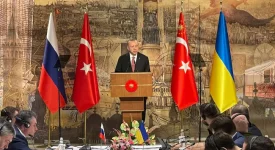The European Union’s budgetary framework for 2014-2020 has been finally approved by the European Parliament following months of vivid discussion among the EU institutions on where to cut spending. Whereas austerity-minded EU member required less spending, the European Commission, the EU’s executive, as well as MEPs have different opinions on where or whether to economize. The long-discussed multi-annual financial framework (MFF) has been approved by a large majority of 682 MEPs although the radical left as well as the Greens voted against.
The MFF comprises 960 billion EUR in future commitments and 908 billion EUR in payments, which is by 3.5 and 3.7 percent less than in the last MFF for 2007-2013. The multi-annual budget sets economic and political priorities for the upcoming seven years, but it must first be approved by a vote in the EU’s 28 member countries.
According to the President of the European Parliament, Martin Schultz, the approval of the 2014-2020 MFF means that funds can be invested in areas that need them the most, eg. anti-unemployment programs, support for poorer regions or investment in research and innovativeness, including support for the Erasmus University and Erasmus mobility and exchange programs, as well as small and medium enterprises, which are seen as the backbone of economic recovery in the EU. Yet, Mr. Schultz regretted that the MFF funding was not more generous, which would have the potential to speed job-creation recovery.
MEP Jean-Luc Dehaene added that the MFF was a substantial investment fund for jobs and growth that should lead Europe out of economic stagnation and ensure that the money is spent where the EU’s priorities are, and Dalia Grybauskaite, President of presidency-holding Lithuania, concluded that the MFF instrumental in boosting Europe’s competitiveness and economic growth.
Article Categories:
INSTITUTIONS & POLICY-MAKING






